
A wet nurse is a woman who breastfeeds and cares for another's child. Wet nurses are employed if the mother dies, or if she is unable or chooses not to nurse the child herself. Wet-nursed children may be known as "milk-siblings", and in some cultures, the families are linked by a special relationship of milk kinship. Wet-nursing existed in cultures around the world until the invention of reliable formula milk in the 20th century. The practice has made a small comeback in the 21st century.

A nanny is a person who provides child care. Typically, this care is given within the children's family setting. Throughout history, nannies were usually servants in large households and reported directly to the lady of the house. Today, modern nannies, like other domestic workers, may live in or out of the house, depending on their circumstances and those of their employers. Some employment agencies specialize in providing nannies, as there are families that specifically seek them and may make them a part of the household.

The small town of Karitane is located within the limits of the city of Dunedin in New Zealand, 35 kilometres to the north of the city centre.
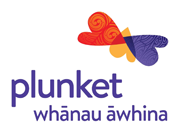
The Royal New Zealand Plunket Trust provides a range of free services aimed at improving the development, health and wellbeing of children under the age of five within New Zealand, where it is commonly known simply as Plunket. Its mission is "to ensure that New Zealand children are among the healthiest in the world". Much of Plunket's work is organised by volunteer bases throughout New Zealand.
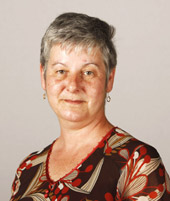
Fiona Grace McLeod is a Scottish politician who served as acting Minister for Children and Young People from 2014 to 2015. A member of the Scottish National Party (SNP), she was Member of the Scottish Parliament (MSP) for Strathkelvin and Bearsden constituency from 2011 to 2016, having previously represented the West of Scotland region from 1999 to 2003.

Sir Frederic Truby King, generally known as Truby King, was a New Zealand health reformer and Director of Child Welfare. He is best known as the founder of the Plunket Society.
Gina Ford is a British author of childcare books in the United Kingdom and a former maternity nurse who has cared for over 300 babies during her career. Ford's 1999 book The Contented Little Baby Book advocates a daily routine for both the baby and the parents, with the day divided up into very precise slots.
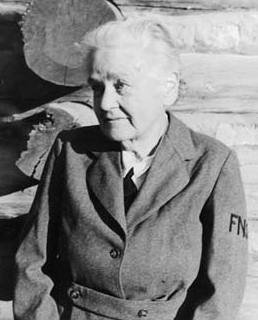
Mary Carson Breckinridge was an American nurse midwife and the founder of the Frontier Nursing Service (FNS), which provided comprehensive family medical care to the mountain people of rural Kentucky. FNS served remote and impoverished areas off the road and rail system but accessible by horseback. She modeled her services on European practices and sought to professionalize American nurse-midwives to practice autonomously in homes and decentralized clinics. Although Breckinridge's work demonstrated efficacy by dramatically reducing infant and maternal mortality in Appalachia, at a comparatively low cost, her model of nurse-midwifery never took root in the United States.

Tsan Yuk Hospital is maternity hospital is located on 30 Hospital Road, Sai Ying Pun on Hong Kong Island, is a public hospital in Hong Kong, It was specialising in obstetrics and gynaecology. It also operates as a teaching and training hospital for the medical and nursing students of Li Ka Shing Faculty of Medicine of the University of Hong Kong.

Casanova Brown is a 1944 American comedy romantic film directed by Sam Wood, written by Nunnally Johnson, and starring Gary Cooper, Teresa Wright, and Frank Morgan. The film had its world premiere in western France after the Allies had liberated those territories following the D-Day Invasion. The film is based on the 1927 novel An Unmarried Father by Floyd Dell and the 1928 play Little Accident by Dell and Thomas Mitchell, which had been previously filmed by Universal Pictures in 1930 as The Little Accident and in 1939 as Little Accident.

The Canadian Mothercraft Society (Mothercraft) is a non-profit, charitable NGO that serves children ages 0 to 6, their families, their teachers, and their community.

Dr. Jose Fabella Memorial Hospital, the National Maternity Hospital, is a maternal and newborn tertiary hospital located in Santa Cruz, Manila in the Philippines. It also houses the Jose Fabella Memorial Hospital School of Midwifery, one of the best performing institutions recognized by the Professional Regulation Commission in the Midwife Licensure Examinations. In 2015, the World Health Organization recognized the hospital "as a role model of the World Health Organization-Western Pacific Region Office for its essential newborn care programs, which have been proven to reduce infant morbidity and mortality".
Bringing Up Baby is a four-part British television documentary series which compares three different childcare methods for babies: the Truby King method, the Benjamin Spock approach, and the Continuum concept. Each method was advocated and administered by a nanny for two families each. The series was controversial when it aired on Channel 4 in 2007, particularly due to the actions recommended by Truby King advocate Claire Verity, and questions over Verity's qualifications.

A monthly nurse is a woman who looks after a mother and her baby during the postpartum or postnatal period. The phrase is now largely obsolete, but the role is still performed under other names and conditions worldwide.
Ruth Watson Lubic, CNM, EdD, FAAN, FACNM, is an American nurse-midwife and applied anthropologist who pioneered the role of nurse-midwives as primary care providers for women, particularly in maternity care. Lubic is considered to be one of the leaders of the nurse-midwifery movement in the United States.
Mary Francis Hill Coley was an American lay midwife who ran a successful business providing a range of birth services and who starred in a critically acclaimed documentary film used to train midwives and doctors. Her competence projected an image of black midwives as the face of an internationally esteemed medical profession, while working within the context of deep social and economic inequality in health care provided to African Americans. Her life story and work exist in the context of Southern granny midwives who served birthing women outside of hospitals.
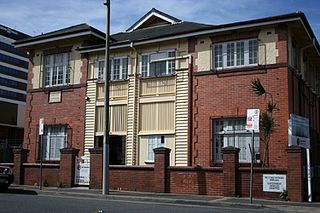
Fortitude Valley Child Health Centre is a heritage-listed clinic at 112 Alfred Street, Fortitude Valley, Queensland, Australia. It was designed by Cecil James Virgo. It is also known as Fortitude Valley Baby Clinic & Nurse Training Centre. It was added to the Queensland Heritage Register on 12 August 2011.
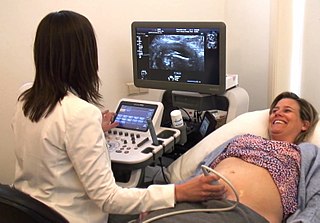
A midwife is a health professional who cares for mothers and newborns around childbirth, a specialization known as midwifery.
The Karitane Hospitals were six hospitals in New Zealand run by the Plunket Society, located in Auckland, Christchurch, Dunedin, Invercargill, Wanganui and Wellington. They were established as training hospitals for Karitane nurses and cared for babies with malnutrition and other dietetic complaints, and premature babies. They also offered mother care training and assistance. The first hospital opened in 1907 and the hospitals were closed between 1978 and 1980 due to financial difficulties and changes in society and maternity services.
The Mothercraft Training Society was an organization in the United Kingdom which trained expectant and new mothers, nurses, midwives, and health visitors in 'mothercraft', with the aim of bringing down infant mortality. Briefly known as the Babies of the Empire Society, before taking on its new name, it established its own infant welfare clinic, with a dietetic hospital, and ran a year-long training course from which students emerged as qualified nursery nurses.












